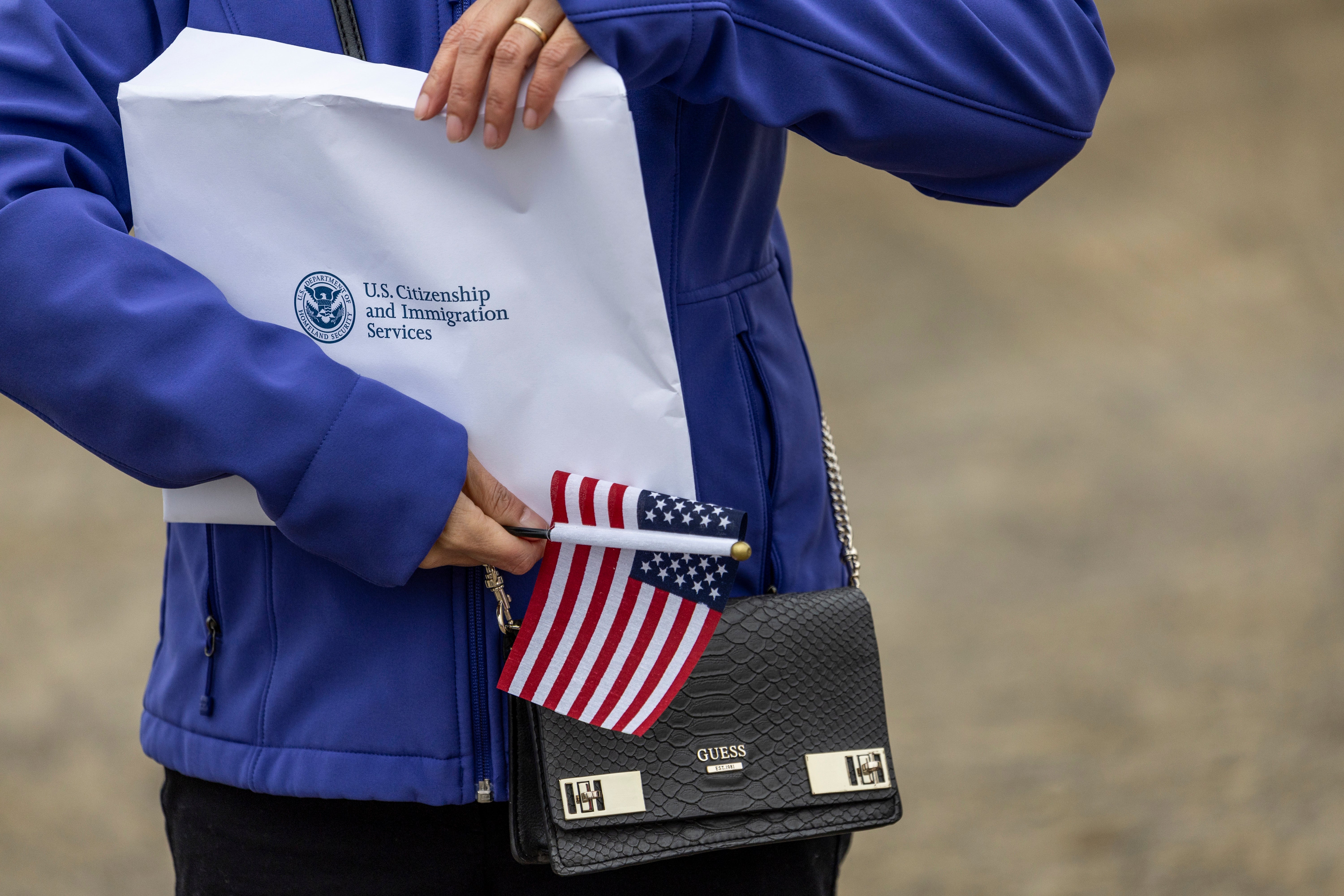The Trump administration is moving to expand scrutiny of immigrants’ “good moral character” when deciding on citizenship applications.
U.S. Citizenship and Immigration Services announced officers will be instructed to seek more than a “cursory mechanical review focused on the absence of wrongdoing” and instead conduct “a holistic assessment of an alien’s behavior, adherence to societal norms, and positive contributions that affirmatively demonstrate good moral character.”
In a memo shared on Friday, the agency said existing rules will remain, such as bars on granting citizenship to people shown to have conducted serious offenses including murder and torture, while outlining new criteria for naturalization.
“U.S. citizenship is the gold standard of citizenship — it should only be offered to the world’s best of the best,” agency spokesperson Matthew J. Tragesser said in a statement to The Hill.
Under the new policy, immigration officers are directed to factor in positive evidence of moral character, like an immigrant’s community involvement and education attainment, as well as negative information, such as repeated DUI convictions or actions that “while technically lawful, may be inconsistent with civic responsibility within the community, such as reckless or habitual traffic infractions, or harassment or aggressive solicitation.”

Officers will also consider evidence of reformed character, such as paying back taxes, or complying with probation conditions.
Experts said the new policy broke with precedent and could be seen within the larger context of the Trump administration’s steps to limit legal immigration and settlement within the U.S.
“They’re trying to increase the grounds for denial of U.S. citizenship by kind of torturing the definition of good moral character to encompass extremely harmless behavior,” Doug Rand, a former senior official at the agency during the Biden administration, told CBS News.
Elsewhere, the Trump administration has functionally shut down refugee resettlement into the U.S., while reportedly mulling a new 40,000-person refugee cap with most slots going to white South Africans.

The White House has also pushed for a non-traditional mid-decade census that would exclude undocumented immigrants, breaking with over two centuries of precedent of the census counting all residents of particular states, U.S. citizens and otherwise.
In March, the administration also suspended processing for certain classes of applications to be a legal permanent resident, otherwise known as obtaining a green card.
The Trump administration has also revoked more than 6,000 student visas since January and has moved to end a variety of Biden-era legal immigration and humanitarian immigration parole programs.





